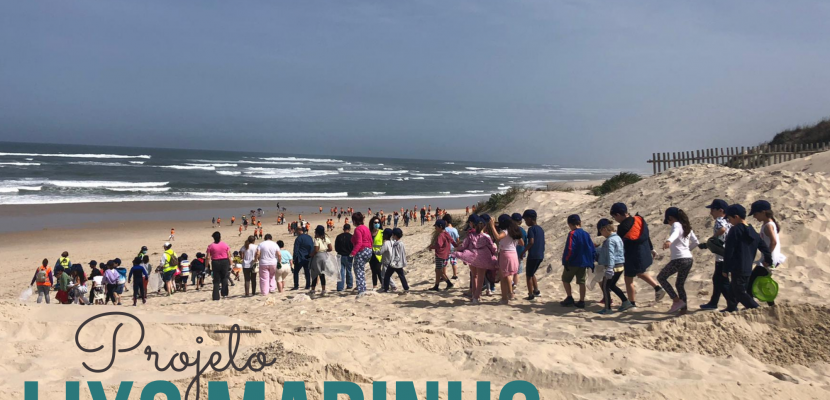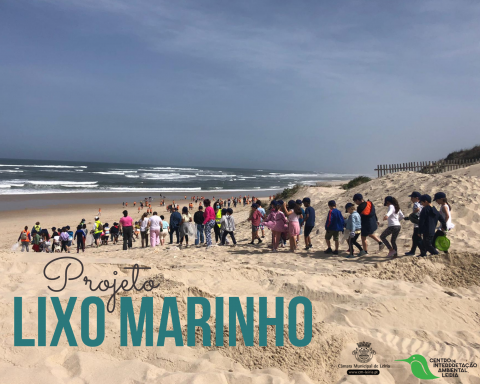
Projeto Lixo Marinho (Marine Litter Project)

About this good practice
The Marine Litter project is one of Leiria's Environmental Interpretive Center (CIA) main projects. It seeks to respond to this problem usually present on the beaches of the Municipality, and how it can be mitigated, through good practices, awareness and knowledge. The main stakeholders in this process are the CIA's partner educational communities, vacationers in the Municipality, and the general population. This project is a compilation of two recurring actions where different dimensions of marine litter are discussed:
1. “Marine litter” workshops: actions discuss marine litter revealing its origins, its impacts on marine ecosystems, and what can be done to stop its effects. These workshops use storytelling techniques, where a playful, appealing, and empathic way of involving participants in the topic under analysis is used. After the story, a connection is made to the real world, presenting some data on Marine Litter and showing objects collected in previous editions of "Praia Limpa" or monitoring actions within the scope of the OSPAR Convention Monitorizations. Finally, participants are made aware of environmentally sustainable habits, which can be replicated and communicated to friends and family;
2. Praia Limpa, established with this name in 2017, has been in practice since 2014. The "hands-on" moment of the CIA's educational project consists of beach cleaning actions carried out by volunteers from the general population or CIA’s partner schools.
Resources needed
HR: 1 to 3 people per activity;
Bus: 100€ to 150€/rental
Partnerships: SUMA (waste collection entity that provides trash bags); Valorlis (recycling and landfill company that receives trash with no additional cost); municipality (provides tractor that collects full trash bags from the shore)
Evidence of success
From 2015 to 2021:
- 28 schools, 1274 volunteers (always with waitings lists for schools)
- 9530Kg of collected marine litter
- Social Media engagement about the issue (communication of numbers, identifications challenges, awareness-raising)
Potential for learning or transfer
This practice has a simple but effective and extremely replicable recipe. It brings together simple features such as stories, examples demonstration, and in-loco verification, which are easy to obtain without requiring too many material resources. These actions allow powerful and engaging communication.
Garbage collection on the beach also adds a participatory component that allows volunteers to be involved and accountable, so that they are useful and feel part of the solution.
It is noted that there are more and more independent initiatives by citizens in beach cleaning activities, probably due to this project.
Further information
Good practice owner
You can contact the good practice owner below for more detailed information.
